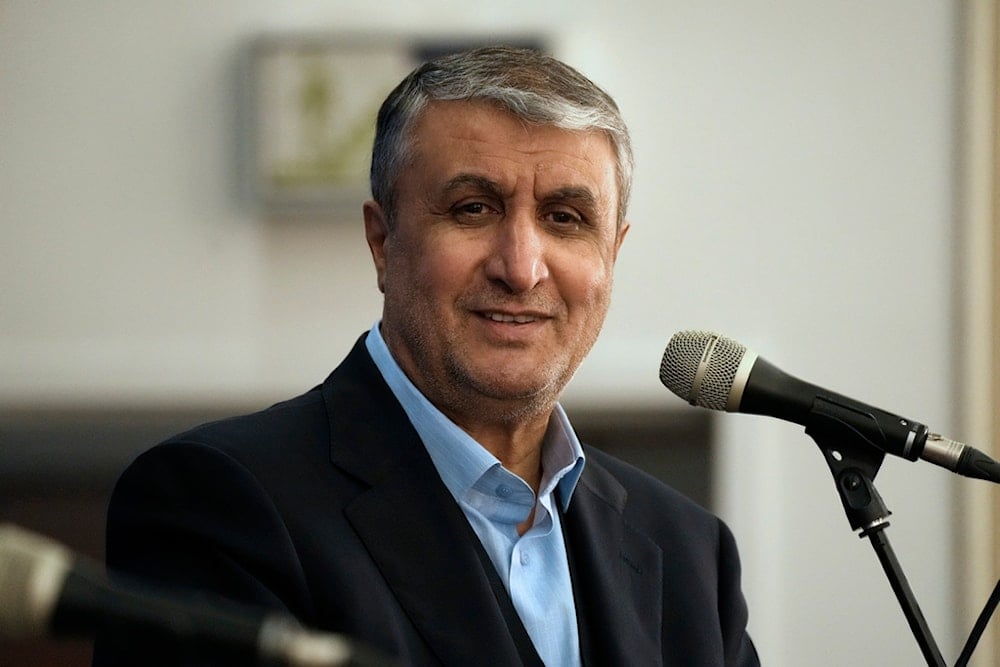Iran: Uranium enrichment a red line, IAEA report politically motivated
Iran's nuclear chief says uranium enrichment is non-negotiable, slamming the IAEA's report as politically motivated and influenced by Western pressure.
-

Head of the Atomic Energy Organization of Iran, Mohammad Eslami, listens during his joint press conference with International Atomic Energy Agency Director General in Tehran, Iran, November 14, 2024. (AP)
Iran’s top nuclear official has reaffirmed the country’s right to enrich uranium, declaring it a foundational and non-negotiable part of the Islamic Republic’s nuclear policy.
In a televised interview aired Monday, Mohammad Eslami, head of the Atomic Energy Organization of Iran (AEOI), emphasized that enrichment remains “the foundation and cornerstone of the nuclear industry” and is a clear red line for the state.
“No one can tell Iran that it does not have the right to enrich [uranium],” Eslami stated.
“The imperative is none of anyone’s concern and has its own framework and requirements,” he added, explaining that uranium enrichment is a sovereign matter beyond the scope of foreign demands.
Eslami’s remarks come as the United States, "Israel", and certain Western officials persist in pressuring Tehran to cease all enrichment activities. The demand has featured prominently in Washington’s indirect talks with Iran since April. Despite these ongoing diplomatic efforts, Iranian officials have repeatedly ruled out any compromise on this issue.
Foreign Minister Abbas Araghchi also reiterated that uranium enrichment is integral to Iran’s peaceful nuclear program. He stressed that the country would continue its enrichment efforts regardless of whether a nuclear deal with the United States is reached.
Iran slams IAEA report as Western-influenced
Addressing a recent International Atomic Energy Agency (IAEA) report on Iran’s nuclear activities, Eslami criticized the document as politically biased and orchestrated by Western powers in collaboration with the Israeli occupation.
He described the report as part of the broader “maximum pressure” strategy led by the US and its European allies, particularly the UK, France, and Germany.
“The United States and the three European countries have pressured the agency under the influence of the Zionist regime,” he said.
“Under the same influence and pressure, the agency has released a detailed report, which is a mix of accusations and the same repeated issues from the past.”
Unlike previous reports, this one spans 84 paragraphs, a notable increase that Iranian authorities say signals a coordinated campaign to discredit the Islamic Republic.
Iranian officials reiterated that their nuclear activities are peaceful, fully monitored, and conducted in full compliance with the Nuclear Non-Proliferation Treaty (NPT).
Iran has consistently urged the IAEA to adopt a neutral, professional stance in its evaluations and to apply equal standards to all member states, including the Israeli regime, a known nuclear-armed entity that refuses to sign the NPT and frequently threatens military action against Iran’s nuclear infrastructure.

 3 Min Read
3 Min Read









